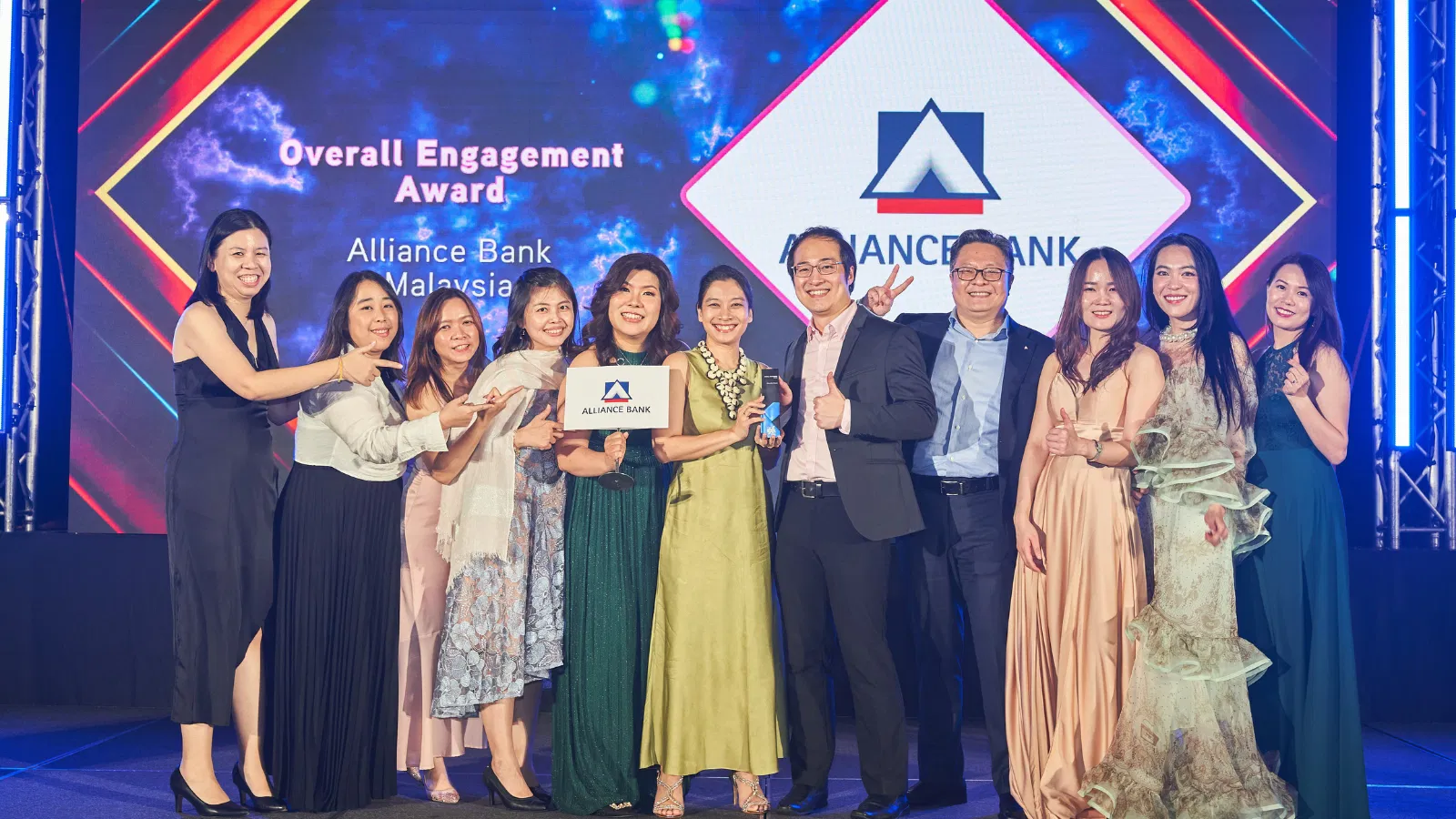Call Anytime
News
Through the Digital Economy Blueprint, Malaysia is scaling up investments in AI, e-commerce, and digital talent — reshaping its business strategy and growth outlook.
Natalie Loi is part of the vanguard working to turn Malaysia into a tech powerhouse in South-East Asia.
Ms Loi was just 19 when she founded her first tech startup, UnBound, while a business student at Victoria University in 2017.
It started out as an education tool — using augmented reality games to make learning more accessible and fun.
"I didn't have a background in tech so I self-taught myself into building a learning application," she said.

Natalie Loi founded a tech startup company at just 17 years of age. (Supplied: Natalie Loi)
UnBound has now has expanded and delved into artificial intelligence (AI), and works with more than 100 institutions across South-East Asia, Australia and UK.
Ms Loi said the government had been focusing on helping startups likes hers and upskilling young graduates.
"As a developing country, we have so much more potential to grow than a developed country," she told the ABC.
She said already developed countries had more outdated infrastructure while Malaysia could leapfrog ahead.
"There's a lot of space for growth and a lot of potential for skill if you want to make an impact in the world."
For full details, see the original article: Malaysia Strives to Become ASEAN’s Tech Powerhouse
When considering their next career move, 48% of Malaysian employees would reject offers from companies that do not actively foster a positive workplace culture.
By Maggie Mancini
In Malaysia, 59% of employees have resigned to leave a toxic workplace, the highest rate in the APAC region, according to research from Randstad. Employees are prioritising work-life balance, highlighting a shift in expectations on employee experiences. A toxic work culture leads to high turnover and understanding its signs is crucial.
Fostering a positive workplace is a strategic advantage for employers seeking to attract talent while avoiding costly recruiting price wars, the report finds. When considering the next career move, 48% of respondents will reject offers from companies that they know do not actively foster a positive workplace culture. This is most prevalent with Gen Z workers (59%) and Gen X workers (50%).
Half of respondents would consider resignation if they do not get along with their managers, with baby boomers leading this trend at 66%. This highlights the critical role of effective leadership and the importance of HR management in fostering healthy social dynamics.
People feel connected when they are back in the office, the report finds. Nearly all respondents in Malaysia find it easier to build relationships when they are physically present, though there is a paradox. At the same time, 43% of respondents would quit their jobs if they are forced to spend more time in the office, rising to 47% among Gen Z and millennials.
This indicates that return-to-office (RTO) mandates must be purpose-driven and flexible. Simply mandating physical presence without considering employee preferences can negatively impact employee engagement and loyalty.
For full details, see the original article: Over Half of Malaysian Workers Would Quit Toxic Workplaces
A Serdang-based study finds transformational leadership styles significantly improve employee engagement and satisfaction in the private sector.
For full details, see the original article: Transformational Leadership Boosts Job Satisfaction in Malaysia
Tan Mui Sim, Group CHRO, believes that when employees feel a deep sense of belonging, experience purposeful growth, and receive meaningful wellbeing support, both they and the organisation are empowered to thrive.
Employee experience (EX) is the sum of every interaction an employee has with their organisation, from onboarding and development to growth and, when needed, offboarding. When EX is anchored in a sense of belonging, meaningful growth, and holistic wellbeing, both employees and organisations are poised to succeed.Alliance Bank Malaysia aims to continue embodying this approach. Guided by a people-first mindset and structured around three powerful EVP pillars – culture, career, and wellbeing – the bank has built an employee experience that not only supports individual aspirations but also drives business success.
This focus led the team to receive the following awards at the Employee Experience Awards 2025, Malaysia:
Gold
- Best Employee Engagement Initiative,
- Best HR Digital Transformation Strategy,
- Best In-House Candidate Experience,
- Best Campus Recruitment Strategy,
- Best In-House Recruitment Team, and
- Best Use of Recruitment Technology Tools.
Silver
- Best Workforce Innovation,
- Best Employer Branding, and
- Best Talent Sourcing and Attraction Strategy.
Overall
- Overall Engagement Award, and
- Overall Talent Acquisition Award.
Sitting down for a quick chat with HRO, Tan Mui Sim, Group Chief Human Resources Officer, Alliance Bank Malaysia, shares why supporting employees at every step of their journey is key to building a thriving workforce.
Q How does your team define "employee experience", and what aspects do you prioritise most?
We define employee experience (EX) as the holistic journey each employee undertakes within the organisation, including phases such as onboarding, development, growth and when unavoidable, offboarding. It encompasses employees’ perceptions, the support provided to them, and the quality of their connection with both their work and the organisation.
Our focus lies in fostering excellence through our three EVP pillars: Culture, career, and wellbeing. When employees experience a strong sense of belonging, purposeful growth and effective wellbeing support, both they and the organisation are well positioned to thrive.
Q Can you walk us through your most high-impact EX initiative that led to your success at the awards this year? What business need did it solve, and how was success measured?
Our most high-impact initiative was the Nationwide Employee Communications Roadshow, an extensive effort in which our entire HR team alongside senior leadership, visited our branches throughout Malaysia, including Sabah and Sarawak. The primary objective was to actively listen, foster trust and engage directly with employees at all locations
"This initiative addressed communication gaps, reinforced organisational culture and demonstrated visible leadership support. As a result, we effectively brought our EVP pillars to life, boosted employee engagement, gathered meaningful feedback and received a highly positive response from employees nationwide."
Q How do you balance personalised employee needs with scalable EX programmes?
We achieve a balance between personalisation and scalability by structuring initiatives around pivotal moments that align with our EVP pillars. Leveraging data and employee feedback enables us to customise experiences for various roles and life stages.Simultaneously, we utilise digital platforms to ensure consistent, accessible and impactful delivery across the organisaton. This strategy empowers us to provide relevant and meaningful experiences at scale whilst maintaining a personalised approach.
Q What are some underappreciated drivers of employee engagement that you think deserve more attention?
Recognition and appreciation, especially when consistent and authentic, can play an important role in the workplace. Whether formal or informal, and whether received from leaders or peers, these actions indicate that employees are acknowledged.Such practices may contribute to a culture of encouragement and trust. Additionally, manager engagement that demonstrates empathy can enhance emotional commitment among employees. While these approaches are straightforward, they are considered essential for developing a truly engaged workforce.
Q Finally, what is the most important message that you'd like to share with your team as you plan ahead?
We extend our appreciation to our HR team for playing a pivotal role in our people strategy. Through each initiative, you’ve exemplified the INSPIRE promise by strengthening our culture, advancing career growth and prioritising wellbeing.As we plan ahead, let us remain attentive, demonstrate decisive action and lead with empathy. Together, we will continue building not merely a workplace, but a true team where every endeavour is grounded in a shared purpose – to improve lives.
For full details, see the original article: Alliance Bank’s EX Blueprint Centres on Culture, Career & Wellbeing
Many local companies have made sustainability pledges, but few deliver measurable results. A new report urges firms to move from symbolic gestures to accountable transformation.
Knight Frank Malaysia has unveiled its 2024 ESG Report, calling on corporate Malaysia to move beyond pledges and embrace measurable sustainability action.
The report highlights significant progress in environmental, social, and governance (ESG) practices, with the firm cutting absolute Scope 2 greenhouse gas emissions by 22% against its 2019 baseline, achieving a 97% employee inclusion rating, and sourcing 100% of operational procurement locally.
Crucially, this marks the second consecutive year Knight Frank Malaysia’s ESG performance has been verified by an independent third party, ensuring compliance with both Bursa Malaysia’s Sustainability Reporting Guide and the Global Reporting Initiative (GRI) standards.
“We are not just reporting progress; we are setting a market benchmark. ESG is now a competitive advantage. If Malaysia’s real estate industry can integrate ESG at this scale, we can unlock investment, strengthen communities, and meet the climate challenge head-on,” said Keith Ooi, Group Managing Director.
This year’s report, themed “Defining Our Targets”, marks a pivot from assessing impacts to delivering clear outcomes. Among its commitments are achieving net-zero emissions for Scopes 1, 2, and 3 by 2040, securing green building certifications for corporate offices, and ensuring all active suppliers are screened against ESG readiness criteria by 2025.
The firm’s initiatives have already earned recognition, including a Silver Award in The Star ESG Positive Impact Awards (Governance, Reporting & Transparency category) and the Outstanding ESG Award (Second Runner-Up) at the BMCC Business Excellence Awards
Key highlights from the 2024 ESG Report
- Environment: 22% reduction in Scope 2 emissions, 10% recycling rate, 100% local procurement, and more than 100 plants added to managed properties.
- Social: 94% employee satisfaction, 97% inclusion rating, 40% of workforce are women (38% shareholders), 12% of CSR spend directed to women’s empowerment, and a 50% increase in community programme investment.
- Governance: 85% training completion on anti-bribery, AML, and data privacy; over 2,000 safety training hours; zero workplace injuries, corruption, or data breaches.
- Preparing for stricter regulations
As Malaysia gears up for tighter ESG disclosure requirements under Bursa Malaysia, Knight Frank Malaysia is also expanding its ESG Advisory Services, helping investors and occupiers design strategic sustainability roadmaps, cut emissions, optimise resources, and mitigate climate-related risks.
“The property sector is at the intersection of climate risk, regulatory pressure, and investor demand. This report shows that measurable ESG action is possible and absolutely necessary to remain competitive in the decade ahead,” Ooi added.
For full details, see the original article: Corporate Malaysia Needs To Push ESG Beyond Pledge To Action (Business Today)
Local initiatives highlight how gender diversity in leadership teams is driving better innovation, decision-making, and business outcomes across industries.
For full details, see the original article: Diversity & Inclusion: Breaking Barriers for Malaysian Women Leaders





